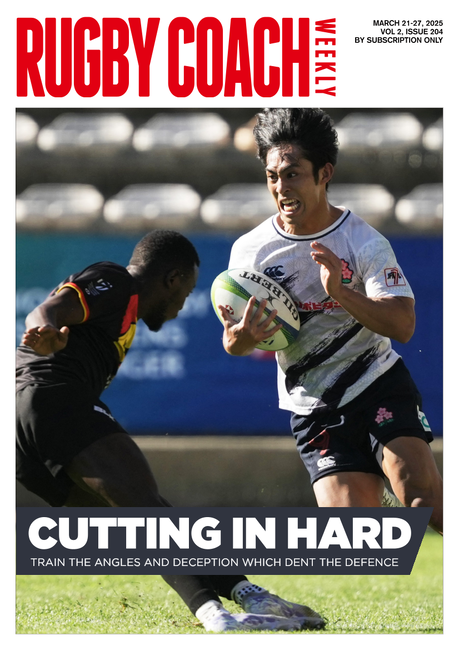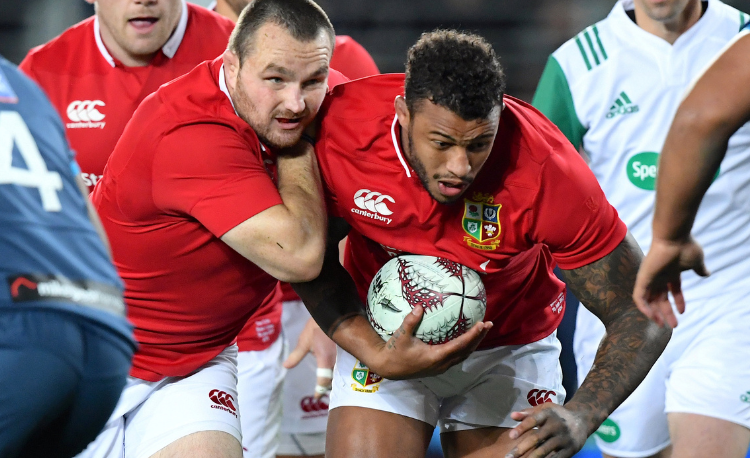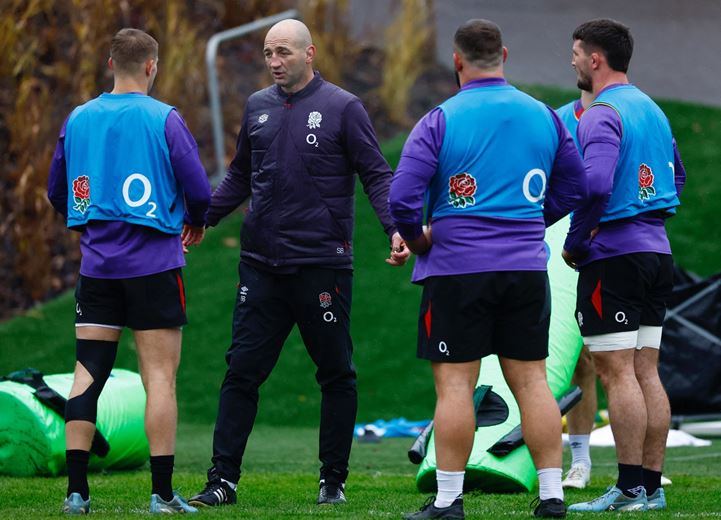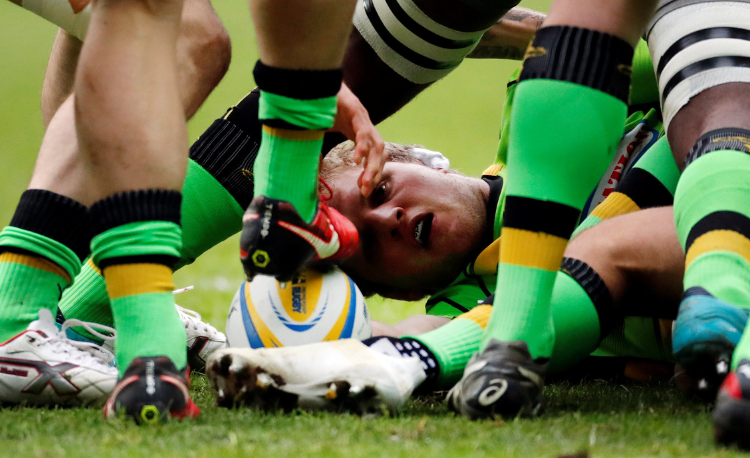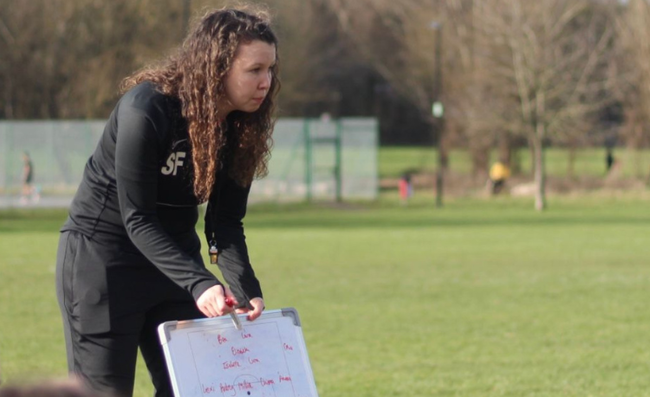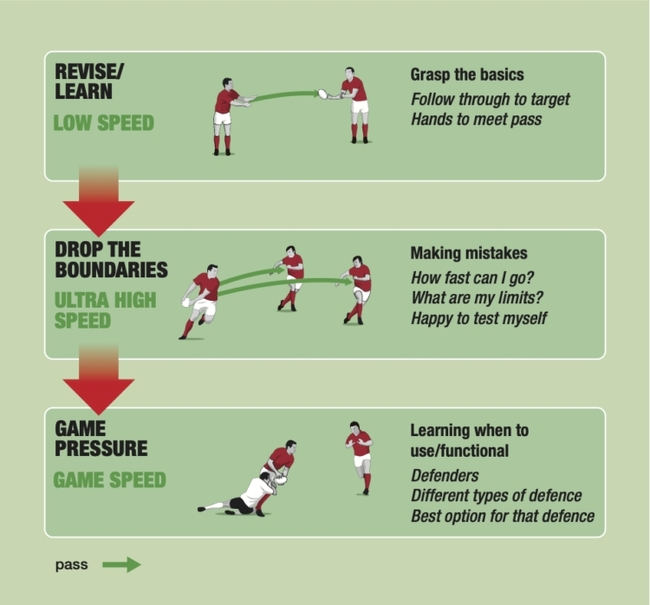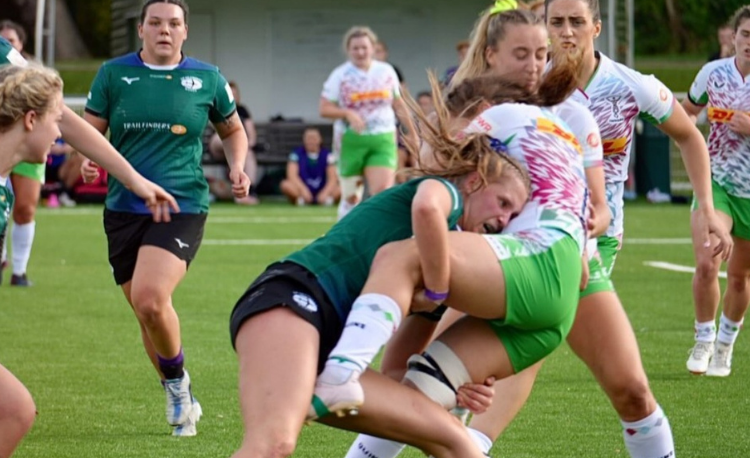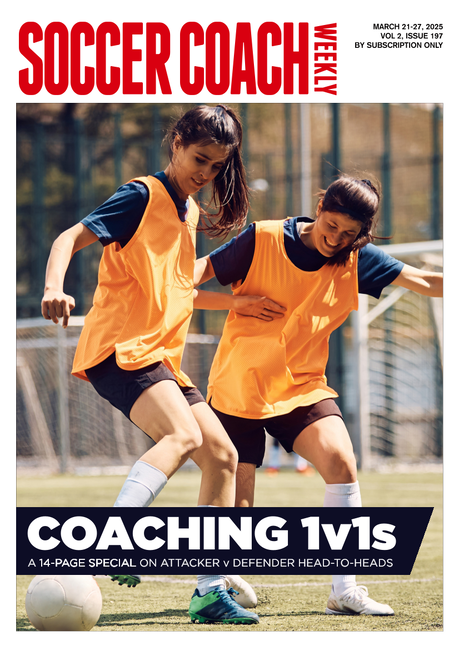10 lessons I’ve learnt from 10 years of Rugby Coach Weekly
“I wish I knew then what I knew now” is something we all think. And, since it’s 10 years since I first started to provide weekly info to grassroots coaches, it’s amazing to think how much my own coaching has changed in that time.
There are three reasons for this:
First, the game has changed – new laws, new initiatives, new age grade rules and a new culture of social media sharing.
Second, I’ve been able to share and discuss views with so many different coaches. This has informed me on what I need to rethink.
Thirdly, I’ve continued to experiment with own coaching, and learned valuable lessons from the mistakes (and sometimes successes) along the way.
That’s been great for me because I’m lucky enough to be able to lend my support to grassroots coaches worldwide, and help them excel in the role they have chosen or been volunteered for.
I hope you like our new website, and enjoy many of the celebratory features we have on offer - It’s been a great journey and here’s to the next decade!

Rugby is chaotic once the whistle goes for the start of the game. There’s some order, but most of the time, there’s a lot going on which is outside of your control.
If you want to replicate that in training, you are going to have let chaos reign and be comfortable with it. I’ve reduced the number of cones I use, the length of explanations for activities and just let the players get on with it.
As long as they know the principles…let them play.
It’s good to have a plan. It’s even better to be determined to achieve a goal, with principles and core skills to help along the way.
But sometimes what you believe isn’t necessarily the right way. I’ve found myself trying to justify something for the wrong reasons, just because I think I don’t want to be wrong.
I’ve certainly changed my mind over player-centred coaching. I can’t think why I thought any differently before. I’m ready to change my mind over games for understanding too. I believe in it now, but I keep checking to see if I might be wrong.
Early in my career I would religiously set up exercises I’d seen at conferences. I would use the same size of box, same number of players and even the same language.
The activities didn’t flow as well as when the original coach had run them. More importantly, the players didn’t find them authentic. They might have found some benefit.
I needed to make them mine and for my team. Trust that you know your team and what will work best for them.
Following on from point 3, I am bursting with ideas based on all the great information that crosses my desk and social media. I’ve found myself arriving at training with a pile of things to do with the players, pumped up and ready to unleash a deluge of ideas.
Now, I realise that the players need flow in training. They can’t be filled with too many thoughts. They just need to work on a few simple ideas, layer upon layer. I have to keep lots of ideas under wraps.
I’ve got a stock of absolute corkers of games and activities. What I realise is that they are minor variations of previous sessions I developed over the years as I’ve made small adjustments along the way.
I know they will change by next year. That’s because there’s always something I could adjust. It might be something I think of, or it could be something someone says in training, or something I read or see. That’s what makes it so exciting.
But not at all costs. We must create games where it’s good to win, yet the consequences of losing are not terrible. A cup final loss is terrible. There’s not “next week” to put things right.
The same is true in training. Can you create games which matter, but there’s always a next time? Players will put in the effort to win, yet not feel awful when they lose.
Naturally we want to win. We know we also need to give everyone a chance to perform. I’ve changed my attitude to ensure a better balance.
Kids don’t concentrate particularly well. They lie sometimes. They don’t want to do fitness training. They do like to play games. They love being silly.
As long as you know this, you can survive training sessions when things don’t seem to be going your way. Plus you can adjust what your session looks like.
Even now, with all my experience, I am still surprised when a tried-and-tested game doesn’t work with kids. Then I remember that they are just kids.
Even the best game, skill or innovation will not persuade some coaches to come out of the dark ages of coaching.
They will still think that “winning is part of a life lesson”, that shouting at children is effective and it’s okay to have a go at the referee if they make a mistake. We can kindly point out that this might not be the best way of coaching but we can’t force them into becoming better.
The more I coach, the more I think why something worked or didn’t. Reflection should be positive. If you dwell on your mistakes, you start to have regrets.
The best reflections I’ve had remind me what I do well, and what I can do differently next time. Listening to all you coaches out there during the last 10 years has made me do this more.
The more I think and write about coaching, the more I find I need to learn. It’s not daunting. In fact, it’s very exciting. I’m discovering new ideas all the time. Rarely are they major game changers. Most of the time, it’s common sense, yet revealed in a way that you never thought of before.
Thank you to all of you for making it an enormous pleasure to be involved in coaching. Keep challenging me. I want to continue to grow.
There are three reasons for this:
First, the game has changed – new laws, new initiatives, new age grade rules and a new culture of social media sharing.
Second, I’ve been able to share and discuss views with so many different coaches. This has informed me on what I need to rethink.
Thirdly, I’ve continued to experiment with own coaching, and learned valuable lessons from the mistakes (and sometimes successes) along the way.
That’s been great for me because I’m lucky enough to be able to lend my support to grassroots coaches worldwide, and help them excel in the role they have chosen or been volunteered for.
I hope you like our new website, and enjoy many of the celebratory features we have on offer - It’s been a great journey and here’s to the next decade!

Here are the 10 lessons I’ve learned…
1. Mess is best
Rugby is chaotic once the whistle goes for the start of the game. There’s some order, but most of the time, there’s a lot going on which is outside of your control.
If you want to replicate that in training, you are going to have let chaos reign and be comfortable with it. I’ve reduced the number of cones I use, the length of explanations for activities and just let the players get on with it.
As long as they know the principles…let them play.
2. Be prepared to change your mind
It’s good to have a plan. It’s even better to be determined to achieve a goal, with principles and core skills to help along the way.
But sometimes what you believe isn’t necessarily the right way. I’ve found myself trying to justify something for the wrong reasons, just because I think I don’t want to be wrong.
I’ve certainly changed my mind over player-centred coaching. I can’t think why I thought any differently before. I’m ready to change my mind over games for understanding too. I believe in it now, but I keep checking to see if I might be wrong.
3. Don’t mimic other coaches
Early in my career I would religiously set up exercises I’d seen at conferences. I would use the same size of box, same number of players and even the same language.
The activities didn’t flow as well as when the original coach had run them. More importantly, the players didn’t find them authentic. They might have found some benefit.
I needed to make them mine and for my team. Trust that you know your team and what will work best for them.
4. Bursting with ideas is bad news
Following on from point 3, I am bursting with ideas based on all the great information that crosses my desk and social media. I’ve found myself arriving at training with a pile of things to do with the players, pumped up and ready to unleash a deluge of ideas.
Now, I realise that the players need flow in training. They can’t be filled with too many thoughts. They just need to work on a few simple ideas, layer upon layer. I have to keep lots of ideas under wraps.
5. There’s always another wrinkle
I’ve got a stock of absolute corkers of games and activities. What I realise is that they are minor variations of previous sessions I developed over the years as I’ve made small adjustments along the way.
I know they will change by next year. That’s because there’s always something I could adjust. It might be something I think of, or it could be something someone says in training, or something I read or see. That’s what makes it so exciting.
6. Winning matters
But not at all costs. We must create games where it’s good to win, yet the consequences of losing are not terrible. A cup final loss is terrible. There’s not “next week” to put things right.
The same is true in training. Can you create games which matter, but there’s always a next time? Players will put in the effort to win, yet not feel awful when they lose.
Naturally we want to win. We know we also need to give everyone a chance to perform. I’ve changed my attitude to ensure a better balance.
7. Kids are always the same
Kids don’t concentrate particularly well. They lie sometimes. They don’t want to do fitness training. They do like to play games. They love being silly.
As long as you know this, you can survive training sessions when things don’t seem to be going your way. Plus you can adjust what your session looks like.
Even now, with all my experience, I am still surprised when a tried-and-tested game doesn’t work with kids. Then I remember that they are just kids.
8. Some coaches can never be persuaded
Even the best game, skill or innovation will not persuade some coaches to come out of the dark ages of coaching.
They will still think that “winning is part of a life lesson”, that shouting at children is effective and it’s okay to have a go at the referee if they make a mistake. We can kindly point out that this might not be the best way of coaching but we can’t force them into becoming better.
9. Be reflective, positively
The more I coach, the more I think why something worked or didn’t. Reflection should be positive. If you dwell on your mistakes, you start to have regrets.
The best reflections I’ve had remind me what I do well, and what I can do differently next time. Listening to all you coaches out there during the last 10 years has made me do this more.
10. There’s still more to learn
The more I think and write about coaching, the more I find I need to learn. It’s not daunting. In fact, it’s very exciting. I’m discovering new ideas all the time. Rarely are they major game changers. Most of the time, it’s common sense, yet revealed in a way that you never thought of before.
Thank you to all of you for making it an enormous pleasure to be involved in coaching. Keep challenging me. I want to continue to grow.
Newsletter Sign Up
Coaches Testimonials

Gerald Kearney, Downtown Las Vegas Soccer Club

Paul Butler, Florida, USA

Rick Shields, Springboro, USA

Tony Green, Pierrefonds Titans, Quebec, Canada
Subscribe Today
Be a more effective, more successful rugby coach
In a recent survey 89% of subscribers said Rugby Coach Weekly makes them more confident, 91% said Rugby Coach Weekly makes them a more effective coach and 93% said Rugby Coach Weekly makes them more inspired.
Get Weekly Inspiration
All the latest techniques and approaches
Rugby Coach Weekly offers proven and easy to use rugby drills, coaching sessions, practice plans, small-sided games, warm-ups, training tips and advice.
We've been at the cutting edge of rugby coaching since we launched in 2005, creating resources for the grassroots youth coach, following best practice from around the world and insights from the professional game.


